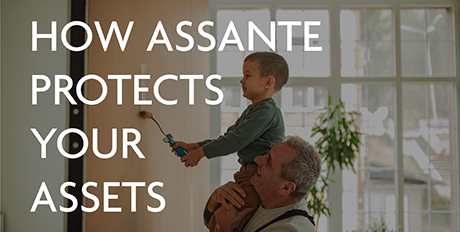Charitable giving through a private foundation
May 15, 2025

People who want to make a lasting impact in the charitable space, have a defined philanthropic vision and prefer to have greater control than a donor-advised fund (DAF) offers may choose to set up and make a major donation to a private charitable foundation. This strategy can help them realize their objectives now and through estate planning.
What are the benefits of setting up a private foundation?
Although there are significantly greater start-up and ongoing financial costs for private foundations compared to DAFs, the benefits include:
- Flexibility—a private foundation can conduct charitable activities or fund other Canada Revenue Agency–qualified donees (which can include other registered charities, Canadian amateur athletic associations, etc.)
- Control over how funds are used—the private foundation’s board of directors or trustees have direct control over which qualified donees receive grants in accordance with the foundation’s governing documents
- Control over management of foundation’s assets—subject to the Canada Revenue Agency’s regulations, the private foundation’s board of directors or trustees retain control over the management of the foundation’s assets
- Family involvement—as the person setting up the private foundation, you can involve your family in the foundation by collaborating with them on which causes to support and actively involving some of them in the foundation—for example, developing strategy, handling grant applications and (especially for young people) visiting charities
- Lasting legacy—since a private foundation can continue in perpetuity (provided that certain legal requirements are met), it can support qualified donees for generations, in keeping with the foundation’s objectives
What’s involved in setting up a private foundation?
Consult legal advisors to determine whether to set up the foundation as a trust or a corporation. Your objectives may play a role in the decision. Once the trust or corporation is established, the Canada Revenue Agency must approve the foundation’s charitable objectives and charitable status.
With a corporation, the board of directors controls and manages the foundation. With a trust, the trustees are responsible for this.
How can a private foundation be part of my estate plan?
You can set up a private foundation now and make a gift in your will to the foundation. Alternatively, by will, you can direct your executor (liquidator in Quebec) to set up a private foundation and transfer either a specific amount or a portion of your estate to it. Note that the latter option adds significant complexity for your executor, who must complete the process based on instructions that may not be adequate or complete.
I would like to extend a special thank you to my colleague, Magali Dussault-Brodeur, wealth planning consultant at CI Assante Private Client, for her invaluable assistance and unwavering support in preparing each blog.
About the Author

Valerie Markidis
As a Wealth Planning Consultant with CI Assante Private Client's Wealth Planning Group, Valerie works closely with our team to provide solutions for our clients in the intergenerational transfer of wealth, with a focus on estate planning. Valerie joined CI Assante in 2022, bringing 14 years of experience at two major trust companies, where she held national responsibility for Wills and actively supported advisors across Canada with questions and interpretations related to Wills, Powers of Attorney and Trusts.
Prior to her tenure with the trust companies, Valerie worked in private practice, where wills and estates were some of her key focus areas. She is lawyer with a Bachelor of Law degree from Osgoode Hall Law School and an Honours BA from Queen’s University.



